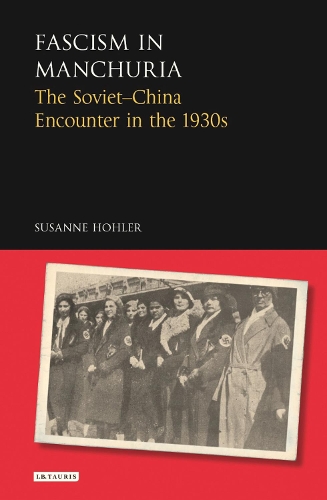
Fascism in Manchuria: The Soviet-China Encounter in the 1930s
(Hardback)
Publishing Details
Fascism in Manchuria: The Soviet-China Encounter in the 1930s
By (Author) Susanne Hohler
Bloomsbury Publishing PLC
I.B. Tauris
18th December 2016
United Kingdom
Classifications
Tertiary Education
Non Fiction
Far-right political ideologies and movements
951.8042
Physical Properties
Hardback
272
Width 138mm, Height 216mm, Spine 25mm
461g
Description
The history of the Russian fascist movement in Harbin, Manchuria during the 1930s has become increasingly relevant to our understanding of modern Russia. As a railway junction and an important centre of the Jewish Diaspora, the city of Harbin became a focus of Russian emigration to Manchuria in the early 1930s, partly because of its proximity to the resource-rich Manchurian plains. In this multicultural and cosmopolitan setting the first Russian fascist groups were established. Based on an analysis of Russian civil society, Fascism in Manchuria sheds light on the impact of the newly-founded All-Russian Fascist Party on the Russian emigre community, employing the concept of 'dark' civil society. Suzanne Hohler demonstrates how fascist involvement in local civil society increasingly determined public opinion, examining the power of the military organizations, the symbols and style of the fascist organizations, the cult of the leader as well as the 'public-relations' activities of the fascist organizations and of the so-called Russian Club. In this context the book provides not only insights into the history and ideology of the far eastern branch of Russian fascism and its transnational connections, but also touches upon a variety of issues of daily life in the city, issues such as education, drug addiction and hooliganism among Russian youth, the local YMCA, the famous Kaspe kidnapping and the rise of anti-Semitism. Fascist literature from Harbin is being republished in today's Russia, and Fascism in Manchuria provides an important historical context for the thinking and motives which drive the Russian right."
Reviews
"this book contributes to an important part of history that is often overlooked--the public discourse and daily life of a city not only at the forefront of historical and political transformation, but also at the meeting point of cultures, ideologies and politics. Through her unique perspective, the author not only adds detail to the history of the city, but also to Jewish history, Russian history and the history of fascism. Harbin is an exceptional place of interwoven cultural and historical narratives. This book plucks one of these narrative threads and unravels a complex society at a key historical juncture."
--Europe-Asia StudiesAuthor Bio
Suzanne Hohler is Assistant Professor of History at Heidelburg University, Germany. She has won several scholarships for her work on this period and is an expert on Russian fascism.
